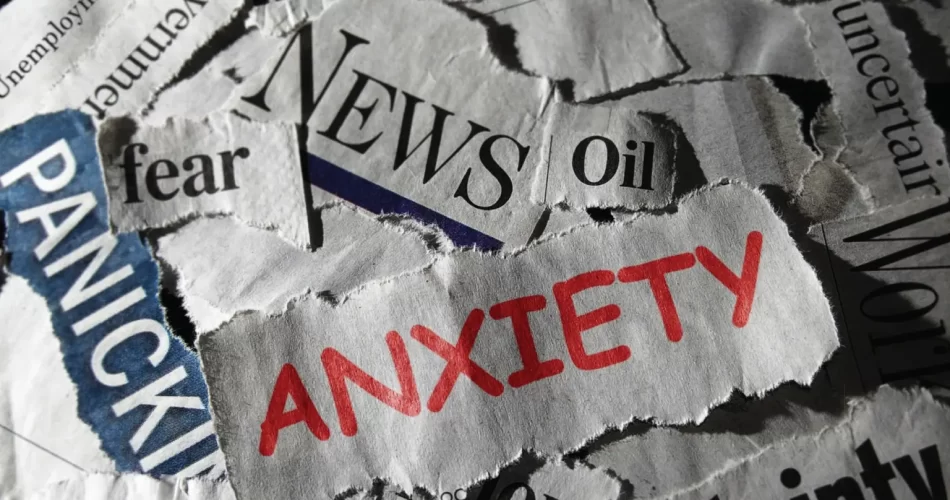Last Updated on 4 March 2024 by Vanessa Thoko
Performance anxiety is the fear of performing in front of others.
It can cause a variety of physical and emotional symptoms, such as a racing heart, sweaty palms, trembling hands, and difficulty concentrating.
Performance anxiety can affect anyone, but it is most common among people who perform regularly, such as musicians, actors, and athletes.
It can also affect people in other situations, such as giving presentations at work or school, or taking exams.
In this post, we’re going to dive into the world of performance anxiety, and how you can tackle it like a pro.
Key Facts
- Performance anxiety is the fear of performing in front of others and can affect anyone.
- Causes include past negative experiences, fear of failure, perfectionism, social anxiety, and other mental health conditions.
- Symptoms encompass physical (racing heart, sweaty palms), emotional (fear, self-doubt), and behavioral signs.
- Impact on performance includes difficulty concentrating, negative thoughts, physical symptoms, and avoidance of performing situations.
- Coping strategies involve challenging negative thoughts, focusing on the present, taking breaks, and being kind to yourself.
- Ultimately, understanding, recognizing, and coping with performance anxiety can help you manage it effectively and achieve success. South Africa offers resources for support in overcoming performance anxiety.
Causes Of Performance Anxiety

There are a number of factors that can contribute to performance anxiety, including:
- Past experiences: Negative experiences with performing in the past, such as being criticized or failing, can make people more likely to experience performance anxiety in the future.
- Fear of failure: People with performance anxiety often have an intense fear of failing or making mistakes. They may worry about what others will think of them if they don’t perform well.
- Perfectionism: People with perfectionism may set unrealistic expectations for themselves and feel like they need to be perfect in order to succeed. This can lead to a great deal of pressure and anxiety.
- Social anxiety: People with social anxiety may experience anxiety in any social situation, including performing situations.
- Other mental health conditions: Performance anxiety can also be associated with other mental health conditions, such as generalized anxiety disorder and social phobia.
Symptoms of Performance Anxiety
The symptoms of performance anxiety can vary from person to person, but they can include:
Physical Symptoms

- Racing heart
- Sweaty palms
- Trembling hands
- Dry mouth
- Upset stomach
- Shortness of breath
- Dizziness
- Nausea
Emotional symptoms

- Fear
- Worry
- Apprehension
- Embarrassment
- Self-doubt
- Negative thoughts about performing
Behavioral Symptoms
- Avoiding performing situations
- Procrastinating on preparation
- Making excuses to not perform
Impact On Performance

Performance anxiety can have a significant impact on performance.
It can lead to a number of problems, including:
- Difficulty concentrating: When you are anxious, it can be difficult to focus on the task at hand. This can lead to mistakes and poor performance.
- Negative thoughts: Performance anxiety can lead to negative thoughts about your ability to perform well. This can further impair your performance and increase your anxiety.
- Physical symptoms: The physical symptoms of performance anxiety, such as a racing heart and trembling hands, can also interfere with performance.
- Avoidance: Performance anxiety may lead you to avoid situations in which you have to perform. This can prevent you from achieving your goals and reaching your full potential.
Case Study
John, a 27-year-old aspiring musician, had always dreamed of performing on a big stage.
He possessed remarkable musical talent, but whenever he had to perform in front of an audience, a relentless wave of performance anxiety would wash over him.
Every time John faced an audience, his body betrayed him.
His hands would tremble, his heart raced, and the lyrics he had practiced meticulously seemed to evaporate from his memory.
The audience’s gaze felt like an intense spotlight that intensified his anxiety, causing his voice to quiver and his notes to falter.
Determined to pursue his passion despite the challenges, John decided to confront his performance anxiety head-on.
He sought the guidance of a mental health professional who specialized in performance anxiety and began a journey of self-improvement.
Coping Strategies
There are a number of coping strategies that can help you manage performance anxiety.
Some of these strategies include:
Challenge Your Negative Thoughts

Identify the negative thoughts that you have about performing and challenge them.
Ask yourself if there is any evidence to support these thoughts.
For example, if you think to yourself, “I’m going to mess up and everyone will laugh at me,” ask yourself if there is any evidence to support this thought.
Have you ever messed up in a performance before and everyone laughed at you? Is it likely that everyone will laugh at you if you make a mistake?
The answer is probably no.
Challenging your negative thoughts can help you to reduce your anxiety and improve your performance.
Focus On The Present
When you are performing, try to focus on the present moment and what you are doing.
Don’t worry about what went wrong in the past or what could go wrong in the future.
Just focus on the task at hand and do your best.
Take Breaks

If you start to feel anxious, take a few deep breaths or step away from the situation for a few minutes.
This can help you to calm down and refocus.
Be kind to yourself
Remember that everyone makes mistakes.
Don’t beat yourself up if you don’t perform perfectly. Just pick yourself up and keep going.
Take Away
Performance anxiety is a natural part of life, but it doesn’t have to control your performance or your happiness.
By understanding its causes, recognizing its symptoms, and adopting coping strategies, you can manage it effectively.
In South Africa, you’re not alone, and there are resources available to help you conquer performance anxiety.
Embrace the challenge and use it as a stepping stone to your success.










